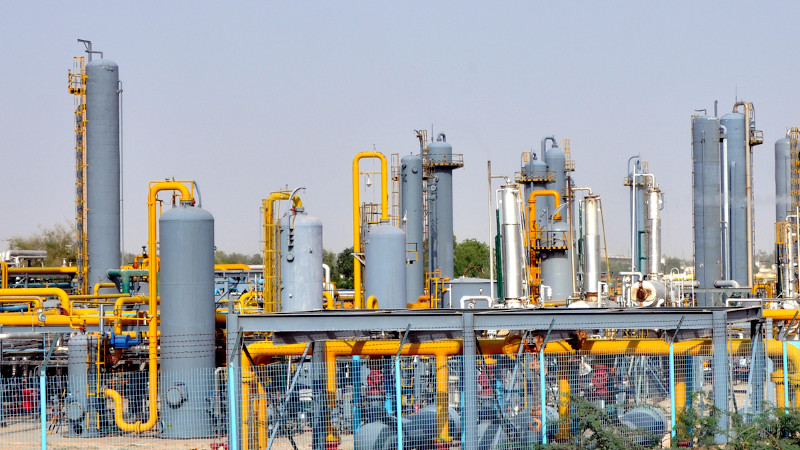Mohsin Siddiqui (Chief Reporter)
The Federal Board of Revenue (FBR) has recently introduced significant amendments under the Finance Act 2024, bringing a slew of changes that impact various sectors and taxpayers in Pakistan. Notably, a 100% tax credit has been allowed for persons engaged in coal mining projects in Sindh, specifically those supplying coal exclusively to power generation projects in the region. This measure aims to boost the coal mining sector and support energy generation initiatives in Sindh.
According to the income tax circular number 1 of 2024 issued on Monday, the FBR has clarified crucial amendments in the Finance Act 2024. An explanation added to Section 65F specifies that the 100% tax credit is exclusively available to income derived from coal mining operations in Sindh for supplying coal to power generation projects. This provision does not extend to any other income streams or heads.
The FBR has made significant changes in the taxation of capital gains, as detailed in Section 37. Previously, individuals acquiring shares of a company had to deduct tax at 10% of the fair market value of shares from the gross amount paid. The Finance Act 2024 now requires the acquirer to deduct tax from the gross amount paid or payable at the time of payment or registration of shares, whichever comes first. Consequently, 10% of the fair market value of shares must be deposited by the acquirer even if the payment has not been made, provided the shares are registered in their name.
The FBR has also clarified the requirements for builders and developers regarding the submission of computation statements. Builders and developers must submit a statement on each due date for the quarters, specifying the computation of advance tax based on taxable profit for each quarter. The statement should include the gross amount of receipts, whether in cash or bank deposits, and details of business bank accounts certified by a Chartered Accountant or a Cost and Management Accountant.
Changes in the taxation of Associations of Persons (AOPs) have been outlined in Section 92. Prior to the Finance Act 2024, a member’s share in an AOP was exempt from tax if the AOP had paid tax on its income. The new amendment introduces a proviso that exempts a member’s share only if the AOP’s turnover is less than Rs 300 million and the AOP has filed returns and financial statements audited by a firm of Chartered Accountants or Cost and Management Accountants.
Section 100BA has been amended to address the provisions related to persons not appearing in the active taxpayers’ list. Before the Finance Act 2024, higher withholding tax rates were applicable to individuals not listed as active taxpayers. The amendment broadens the scope to include those who appear in the active taxpayers’ list but have filed returns after the due date specified in Section 118 or by an extended date under Section 119 or 214A. The circular further explains the tax rates for these individuals.
The Finance Act 2024 also clarifies the geographical source of income, specifically for non-resident persons. According to Section 101, the income of a non-resident person under any head of income should be computed based on Pakistan-source income. Sub-section (3) of Section 101 defines Pakistan-source business income of a non-resident person. Clause (d) of this sub-section states that business income of a non-resident person is considered Pakistan-source to the extent it is attributable to any business connection in Pakistan. The term “business connection in Pakistan” now includes significant economic presence, which encompasses transactions involving goods, services, or property with any person in Pakistan, including data or software downloads, provided the aggregate payment from such transactions exceeds a prescribed amount.
The tax rate on dividends received from mutual funds has been revised. Previously, the rate was 15%. The Finance Act 2024 introduces a proviso in the First Schedule, increasing the rate to 25% for dividends received from mutual funds deriving 50% or more of their income from profit on debt. This change affects the rate of tax to be deducted on such dividends as well.
The circular also addresses changes in tax rates for toll manufacturing. The prescribed person making a payment for the sale of goods, including toll manufacturing, was required to deduct tax at a rate of 5% for companies and 5.5% for other cases. These rates have been increased to 9% for companies and 11% for other cases.
Income of Special Purpose Vehicles (SPVs) from purchasing Diversified Payment Rights through Authorized Dealers in Pakistan is exempt from tax under clause (99B) of Part I of the Second Schedule. This exemption aligns with definitions provided in the State Bank of Pakistan’s circulars or regulations regarding Diversified Payment Rights.
The FBR has extended the tax exemption available to individuals domiciled, companies, and associations of persons resident in the erstwhile Tribal Areas forming part of Khyber Pakhtunkhwa and Balochistan. The exemption, under clause (145A) of Part I of the Second Schedule, is now extended up to June 30, 2025.



